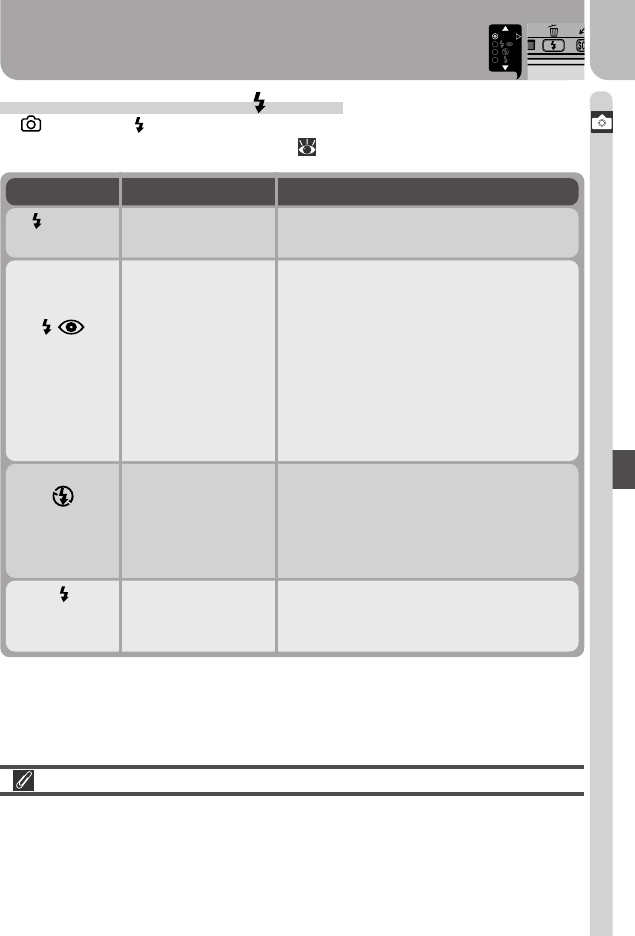
53
Taking Pictures—Beyond Point-and-Shoot
Flash Photography: The Button
In mode, the button controls the flash. Four flash modes are available
(restrictions may apply in scene mode; 36):
AUTO
Auto
Flash fires when
lighting is poor.
Best choice in most circumstances.
Auto with
red-eye
reduction
Pre-flash fires be-
fore main flash.
This causes sub-
jects’ pupils to con-
tract before photo
is taken, minimizing
“red-eye” effect
caused by flash re-
flecting from retina.
Use for portraits (works best when sub-
jects are well within range of flash and
looking at pre-flash). Because a slight
delay occurs after the shutter-release
button is fully pressed to allow the pre-
flash to take effect, this setting is not
recommended with erratically-moving
subjects or in other situations in which
you want the camera to react quickly.
Anytime Flash
(fill flash)
Flash fires whenev-
er picture is taken.
Use to “fill-in” (illuminate) shadows and
back-lit subjects.
Flash Cancel
(off)
Flash will not fire
even when lighting
is poor.
Use when subject is outside range of
flash, to capture natural lighting under
dim light, or where use of a flash is pro-
hibited. Use of a tripod is recommend-
ed to prevent blurring.
Mode How it works When to use it
AUTO
The Flash-Ready Light
A short pause is required between exposures for the flash system to charge. If
the shutter-release button is pressed halfway while the flash is charging, the
flash-ready light under the monitor will flicker. Remove your finger briefly
from the shutter-release button and try again.


















